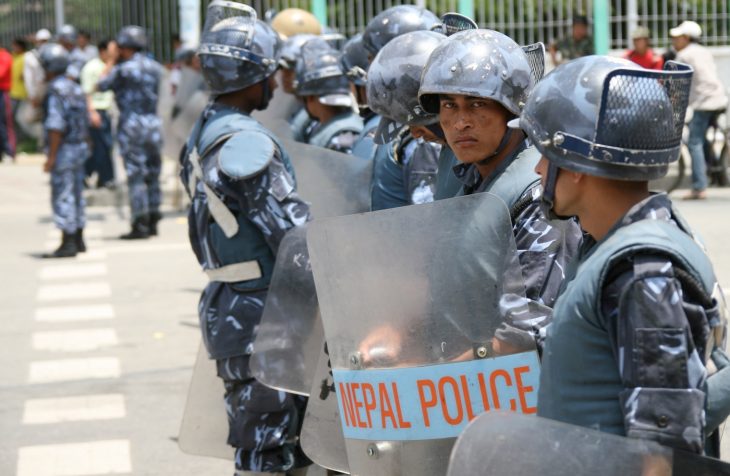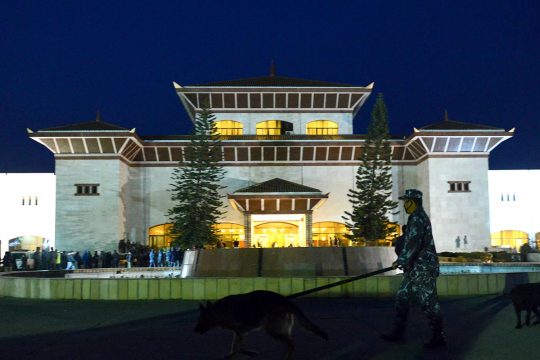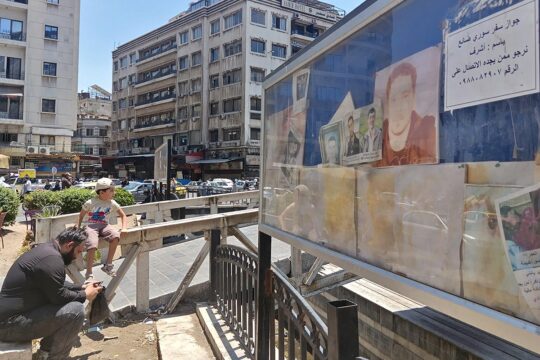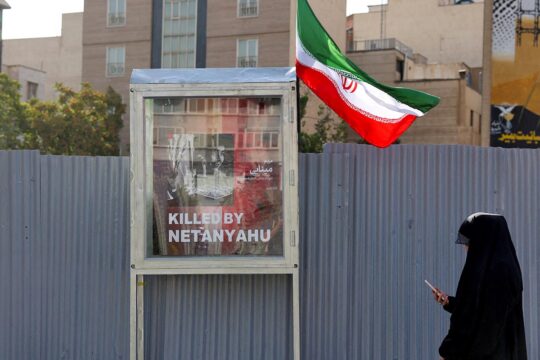Over the past two decades, Nepal has suffered greatly, seeing minimal progress on social transformation, transitional justice, criminal accountability, and access to justice. The cyclical nature of Nepali politics and lack of progress has placed the transformative agenda squarely in the hands of few elites who have full control of the state apparatus. The return of Sher Bahadur Deuba as Prime Minister (the 25th in the past 27 years, after 1990s Peoples movement) clearly shows the instability of the Nepali state.
On June 6th, 2017, Sher Bahadur Deuba was elected Prime Minister of Nepal for the fourth time. Deuba is President of the Nepali Congress, and has served as the Prime Minister of Nepal three times, from September 1995 to March 1997, August 2001 to October 2002, and 2nd June 2004 until 1st February 2005, before the former King Gyanendra Shah seized absolute power.
Deuba is a key character in the narrative of Nepal’s political chaos. When he headed the government the first time from 1995-97, the Maoist Party declared a “People’s War” against the State in 1996. The Deuba led government and Pushpa Kamal Dahal led Maoist Party declared each other ‘enemies’ and vowed to fight to the finish. Deuba’s state of emergency declared the Maoists to be ‘terrorists’. At the height of the civil war, then-Prime Minister Deuba announced a five million-rupee bounty for Dahal as well as the capture of hundreds of other political activists, dead or alive. After a decade of conflict, Dahal and Deuba have formed an alliance in an effort to hide the truth and destroy the history of Nepal’s violent past. It is a clear signal that political elites intend to collaborate to protect themselves, and risks repeating our history of violence by advancing the politics of revenge and radicalizing the marginalized, whose fight against injustice is still continuing.
Deuba’s return raised doubts and brought chaos in the political domain, which is grappling with serious challenges to sustainable progress. Challenges remain not only in implementing the new federal constitution, but also in managing the transitional process and conflicting elements that strongly exist in our socio-political realm. The current system is not addressing the key demands of conflict survivors, victims of political violence, and political forces outside the current constitutional process that may create more challenges for the future.
The similar agenda of truth, justice, institutional reform and a just development are in the front, the resistance continues. However the cyclical nature of politics has disempowered the people’s progressive agenda, access to justice and produced more victims in the process, such as transitional justice and political cynicism.
Deuba’s record remains more inhuman and brutal than progressive. The majority of enforced disappearances and other crimes occurred during his political leadership. In November 1995, he launched a police operation called “Operation Romeo” in Rolpa district, the heart of the Maoist movement. The operation aimed to sabotage the radical political activists in the remote hills district of Nepal and resulted in gross violations of human rights, including arbitrary arrest and detention, rapes, executions and disappearances.
Deuba declared a state of emergency in November 2001, mobilizing the then-Royal Nepal Army (RNA) and forming the ‘Unified Command’ fight the Maoists, and ramped up the government’s human rights violations--including extrajudicial killings via aerial bombings, arbitrary detention and torture, enforced disappearances, and rapes. It was Deuba who introduced the infamous Terrorist and Destructive Activities (Control and Punishment) Act (TADA)
The continued presence of rights abusers in government and in the security apparatus is preventing the institutionalization of democratic political processes and the rule of law. The security forces and political forces that committed the rights violations during and in the aftermath of the conflict often obstructed the transitional justice process and promoted political protectionism. Deuba is a big defender of Nepal’s security forces; he denies structural violence and has never accepted the errors of our violent past. It’s a shameful betrayal of the top leaders of the ruling parties – Nepali Congress and the Maoists, who were once sworn enemies and prime architects of the civil war that now collude to hide the truth through political amnesty, making conflict survivors, citizens and the nation fools through political reconciliation at the top, without addressing the structural issues of the marginalised.
Transitional Justice blocked
There are clear-cut reasons that the transitional justice process is sidelined. The promised commitment to the nation failed to implement what we witnessed in the past decade. Before Deuba’s comeback, the Maoist-led Dahal Government rewarded some noted perpetrators both from political and security institutions who were involved in conflict related disappearances, torture and killings on 29th May, Nepal’s “Republic Day’ – a big insult to the fighters and conflict survivors. Two transitional justice bodies – the truth and reconciliation commission (TRC) and commission of investigation on enforced disappeared persons (CIEDP) – are defunct due to lack of political commitment, a clear legal mandate, adequate resources, and expertise. Who have obstructed criminalization of the enforced disappearance? Who defends the senior security officials and political leaders; those who were involved in conflict time violations? Who are the institutions or actors that block the process and influence in the transitional justice process? What are the factors which make the commissions not able to function independently and cause them to fail to deliver a result?
The simple answer is the government’s unwillingness to address the legacy of violence, the power of the perpetrators, and the political protection of criminals.
Difficult exit
Nepal’s government, in its joint policy and programmes, claimed that they have done a significant job in terms of establishing a peace and transitional justice process. The government has taken credit for the formation of the two commissions, for the one-year extension of the two commissions, and for ending the conflict. However, the commissions now have a very limited time (until February 2018) to fulfil their mandates and lack a clear exit policy. Both commissions have offered no answers concerning what would happen to the TRC’s 59,000 and CIEDP’s 3,000 cases of registered violations. Without dealing with the past violations in a just way, history will not forgive and there will always be a chance that the cycle of violence and revenge will repeat itself. Thousands of conflict survivors and the marginalised communities will not only continue to live in uncertainty but find a route to resist the injustices. Again, a more organized civil resistance and social intervention to change the course is a must. Social justice is inevitable. The empty narratives of peace -- without ensuring the rights and justice in practice -- cannot sustain a peaceful future. The role of state institutions will determine whether we deal with the past responsibly or we enter into the uncertain future of confrontations.






